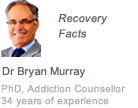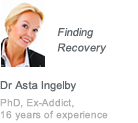Drug Addiction Myths
Myths and legends surrounding drugs and drug addiction abound. At times the stories can be amusing, but the issue is serious. Ignorance fosters misunderstanding, and can put potentially vulnerable people at a greater risk when it comes to drug use and abuse. If someone is told by their peers that a particular drug is cool, never a problem and you can handle it, and the individual has no knowledge or understanding otherwise, they are under greater pressure to conform and experiment.
Parents and carers can find it difficult to approach the subject of drugs, it is taboo in many ways, something not spoken of or referred to. This blinkered attitude will not make the issue go away, it is not possible to sweep it under the carpet and expect it to magically disappear. Knowledge is empowering, education enables knowledge – so to help young people, particularly, teaching them the truth about drugs, drug use, drug abuse and drug addiction will give them a sound basis to make a choice about whether or not they take something.
Myths about addiction development
Dependence, tolerance and addiction are all terms bandied around by those either in the caring professions who are helping to solve drug addiction, or by those trying to understand and often missing the point. Not knowing exactly what is meant when a drug counselor states that an individual is drug dependent can cause confusion, the same is so when a medic tells someone that they have developed a tolerance for a prescribed drug and need to change the medication they take. Even experts and professionals will occasionally disagree about what, precisely, these terms mean and how they accurately describe the process of drug addiction developing. So what chance do lay people with no experience or understanding have?
Drug addiction is very rarely something that a single dose of one particular drug will cause, although there are exceptions to this of course, both for individuals and for the drugs. Generally though, drug addiction develops through repeated use and/or abuse of a drug.
- Tolerance describes the physical adaptations the human body will make to accept a toxin being present in the system. Each time the drug is taken the body can manage its reactions to it better, the body tolerates the presence of the drug. But, each time the body does this the result the user is seeking needs a higher dose simpler because of the tolerance factor. So drug abuse results in a higher and higher dose being used to attain the same result.
- Dependence is a stage in the development of addiction, although many people prefer to say that an individual is drug dependent rather than admit that they are addicted. Alongside tolerance of toxins the human body will change how it functions and if normal functions can only be maintained by accepting a level of poison in the system, then that is what the body will do. Accepting that poison requires the body to include it as part of the natural chemical make-up, and in that way dependence becomes part of the fabric of the body’s structure.
- Addiction is really an extension or combination of tolerance and dependence. The body has adapted so much, bent round so far to deal with the poisons continually being ingested that if those poisons are not replaced as they are metabolized and excreted the body reacts adversely. This adverse reaction is known as withdrawal – a conglomerate of signs, symptoms and side effects of the body demanding the artificial environment it has created to manage the ingestion of toxins be maintained.
These terms can also be applied to drug addiction that is not physical, or that is not only physical. Psychological addiction is as difficult to treat as physical addiction. Many drugs that are used as recreational toys have as strong a psychological hold as they do a physical grip. A drug addict’s emotional, mental and physical states are all adapted to the presence of the drug and the need to maintain that drug in the body.
People often make assumptions about others, and more so when they do not approve of something that an individual does. Society has a tendency to label and categorize, with drug addiction statements that are inaccurate, inappropriate and can have a contrary effect when talking to an addict about their problems. Beliefs based on a lack of understanding and knowledge are rife:
- Drug addiction is voluntary – people can choose to be An Addict, or not…
Yes of course that first choice, to take or not to take, is voluntary, to a point. But addiction is not a choice; it is a state of mind and body, driven by the drug, not the person. When a drug has entered the system there are changes in brain activity, the production of certain hormones, nervous reactions and so on. An addict thinks and reacts differently, the drivers are the drug, the addiction is the car if you like, while the person the hapless passenger. Memory of life without the drug fades, while the strength of withdrawal symptoms grows and the need to stay topped up is the only thing that can matter. - Beating addiction is just about willpower, if an individual really wants to stop specialized help is not needed
Willpower, determination, courage and strength are all needed for a drug addict to regain a life without drugs. Some people do manage to get through a cold turkey withdrawal and come out sane on the other side, they are the exceptions, and most will fall off into using quite quickly. Withdrawal and detox is only the first stage of recovery for an addict. Physically probably the hardest stage, and the extremes of withdrawal can kill, the pain is excruciating, the panic and confusion almost insurmountable. If an addict is brave enough and strong enough to admit that they need help why punish them by withholding rehab treatment that will see them through detox and withdrawal and give them a greater chance of staying clean. - Once an addict always an addict
It is different for each addict and each situation, and a great deal depends on the person and his lifestyle. Drug addiction will inevitably change the life of a person, even if an addict successfully attains a stage of recovery. Once recovered, an ex-addict will need support and understanding to sustain that hard-won recovery. If an addict in recovery goes back to a lifestyle with all the old stresses, difficulties, damaged relationships and no structured support in place, then the probability of lapse or relapse can be high. Sustained recovery from drug addiction requires the willpower of the addict and the support of those around him. The nature of rehab is also important. Holistic programs that treat the person, the problems and drivers that took that person to addiction, have a higher success rate.
Myths about drug addicts, their personalities and behavior
- Drug addicts are stupid and morally weak
While some addicts are indeed morally weak, so are many people who have no drug addiction. Instead they may be traffickers, thieves or killers. The moral integrity of someone suffering with a drug addiction is distorted by the desperation to fund the habit; it is not an indication that the person is either amoral or immoral in the first place. Many drug addicts are successful, clever, rich and even famous – drug addiction does not discriminate and only select the weak. - It is better to be a drug addict than an alcoholic
An alcoholic is an addict – the drug an alcoholic is addicted to happens to be alcohol. Alcohol addiction is just as destructive as any other drug addiction. Perhaps the pace of ruination is slower, but the ultimate consequences are the same. - I can live with an addict, I love him, but I do not take drugs and I never will.
Misery loves company, as the saying goes. While it is possible to live with and to love a drug addict it is unlikely to be stable or safe relationship. The sober partner may find it difficult to leave the person they care so much for alone because they are watching a person dissolving on a daily basis. It is natural and right that a sober person tries to help. But the addiction is in control here, not the addict. Responses to pleas to get clean or to get help can be met with hostility or violent aggression. The addiction wants the sober partner on-side and in the same situation as the drug addict. So even if the sober partner can remain silent about their concerns, the drug addict will try to cajole or persuade them to use. Eventually something will break, it could be the sober partner walking away and leaving the addict to their own devices, it could be the addict lashing out and attacking their partner, or it could be the sober partner trying the drug to see if the can understand the addiction better. Each scenario is negative. The only course of action that someone can responsibly take if they truly want to help someone they love recover from their drug addiction and get a life back is to get a little distance, get help for themselves and the addict. And be there when the addict is ready to come back to the world free of drug addiction.
Drug addiction myths and legends are not good – they reduce the chances of addicts getting appropriate and timely help. Talk about drugs, drug addiction and the myths that this underworld shrouds itself in, break apart the nonsense from truth and then find professional help. If you know that someone you care about has a drug addiction call your physician, discuss everything with them and get help. Oh, and do it today.












